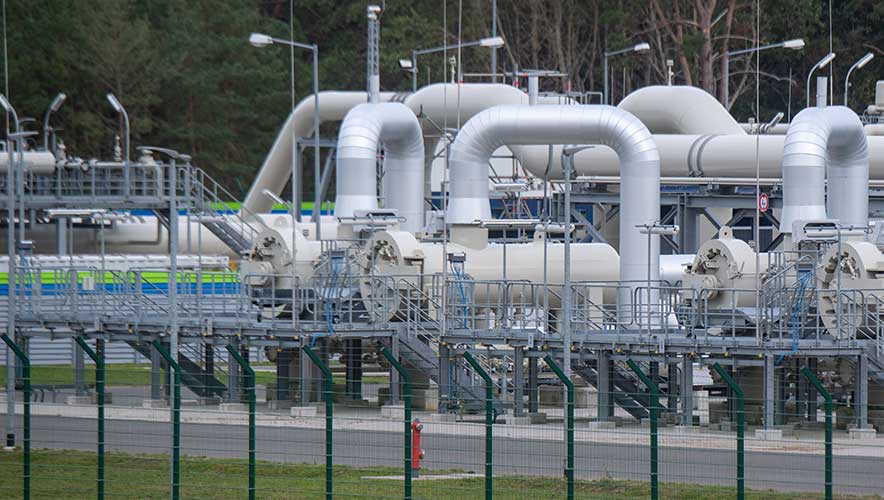Danish, Swedish Officials Claim Sabotage After Detecting Fourth Nord Stream Pipeline Leak
Swedish officials reported a fourth leak from the Nord Stream pipelines in the Baltic Sea near southern Sweden on Thursday.
The parallel pipelines—which transport gas from Russia, through the Baltic, to northeastern Germany—have leaks in two separate positions, according to the Swedish coast guard. Two leaks were reported on the Nord Stream 1 pipeline, and the other two leaks are from the Nord Stream 2 line.
“Although they were not running, both pipelines were filled with gas, which has escaped and bubbled to the surface,” the Associated Press reported.
Prior to detecting the intial leaks on Tuesday, seismologists in Denmark, Finland, and Norway recorded explosions. The Danish and Swedish governments assert that the explosions and subsequent leaks were deliberate and acts of sabotage.
Some authorities and energy experts in Europe claim that Russia is probably behind the sabotage. In a statement released on Thursday, NATO insisted that there is evidence indicating the pipelines were deliberately damaged.
"All currently available information indicates that this is the result of deliberate, reckless, and irresponsible acts of sabotage," NATO said. "These leaks are causing risks to shipping and substantial environmental damage. We support the investigations underway to determine the origin of the damage."
This is not the first time that Russia has been accused of leveraging its gas stores against Western nations. The accusations came after the West levied sanctions against Russia for invading Ukraine in February 2022.
“Speculation has pointed to Russia, whose state-controlled energy company, Gazprom, is the main owner of the pipelines. A spokesman for President Vladimir V. Putin of Russia, Dmitri S. Peskov, dismissed allegations of Russian involvement as 'stupid' and pointed a finger at the United States,” The New York Times reported.
Prior to the discovery of the leaks, “natural gas prices in Europe had dropped from their all-time peak in late August because countries have filled storage facilities to 87 percent of capacity ahead of winter, when demand for the fuel soars to heat homes and generate electricity,” the AP said. “…Natural gas prices are roughly three times higher than just before Russia invaded Ukraine. An energy crisis driven by the way is threatening rationing, business closures and recession in Europe.”
How Europe will survive the winter is dependent upon the coming season’s temperatures and if other energy supplies can replace the deficit from Russian gas. Nord Stream 1 began running gas to Germany in 2011, providing the country with more than half of its annual gas consumption. Construction of Nord Stream 2 was finished in 2021; however, the line was never fully operational.
Repairs of the pipelines are estimated to take between three to six months.
“In the aftermath of the alleged attacks, Norway—now Europe’s largest gas supplier—has decided to deploy its military to protect crucial infrastructure,” BBC News reported. This will include more a more visible military presence at oil and gas installations, and a naval presence at offshore installations. At least one state-owned energy company, Equinor, said it was increasing its security measures.
Western allies have also committed themselves to assisting against any attacks on infrastructure.
“We, as Allies, have committed to prepare for, deter and defend against the coercive use of energy and other hybrid tactics by state and non-state actors," NATO said in its statement. "Any deliberate attack against Allies’ critical infrastructure would be met with a united and determined response."
